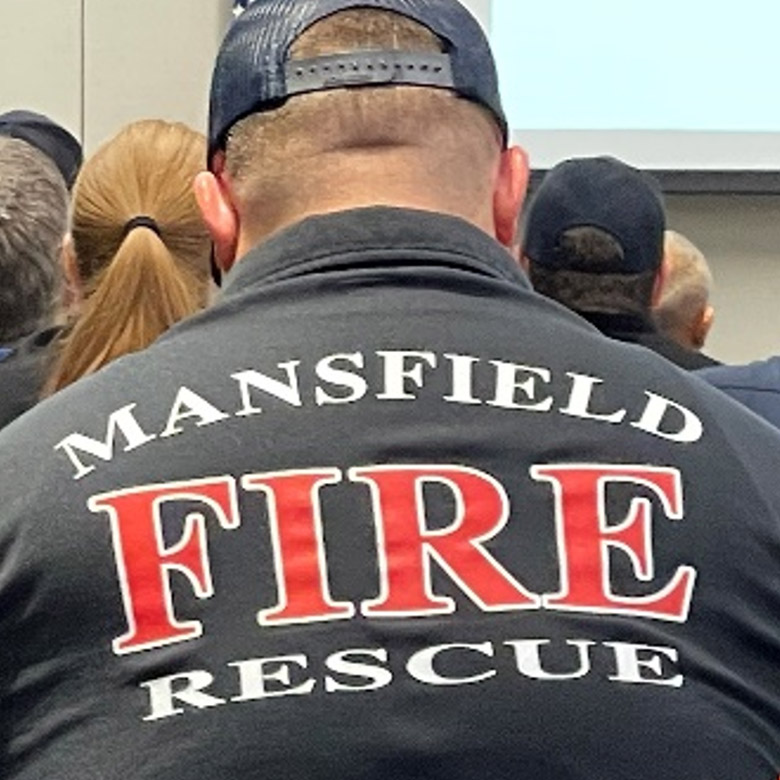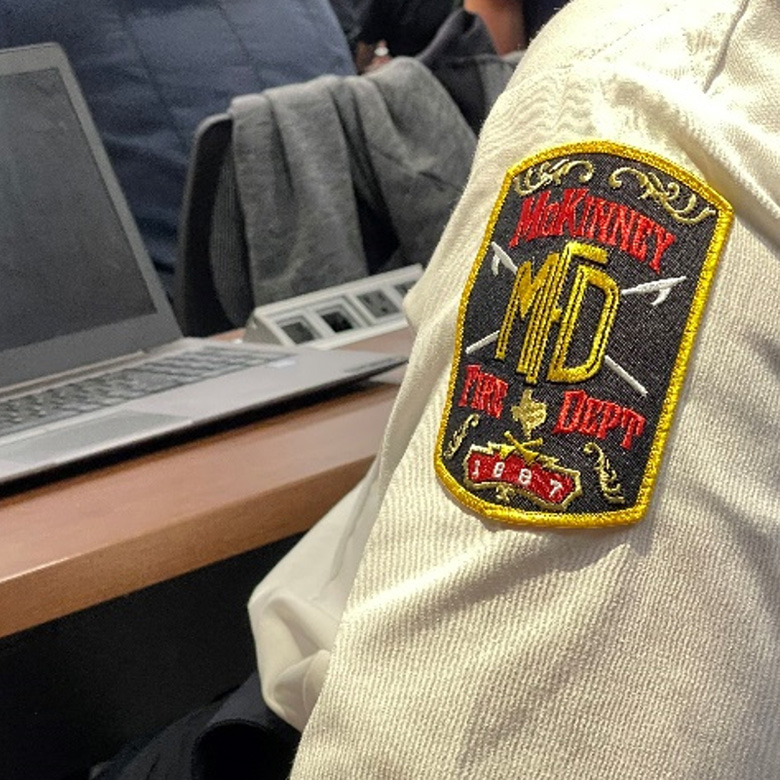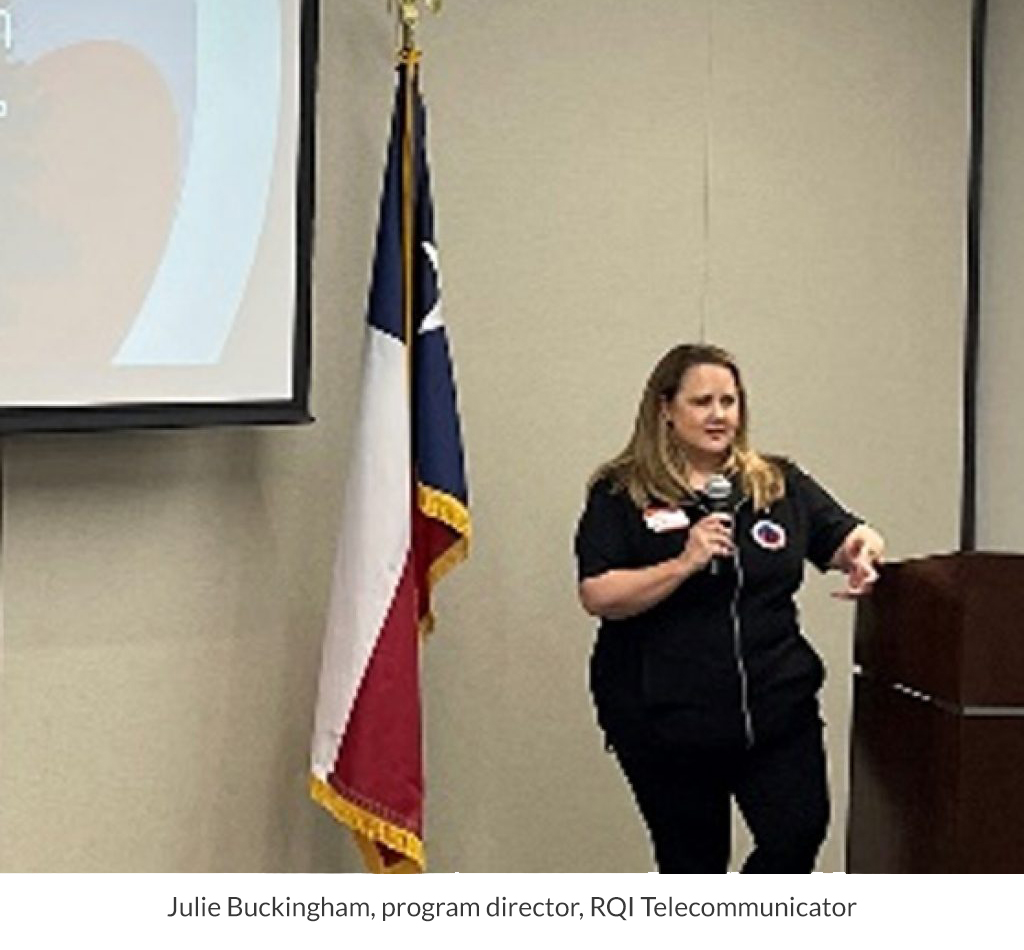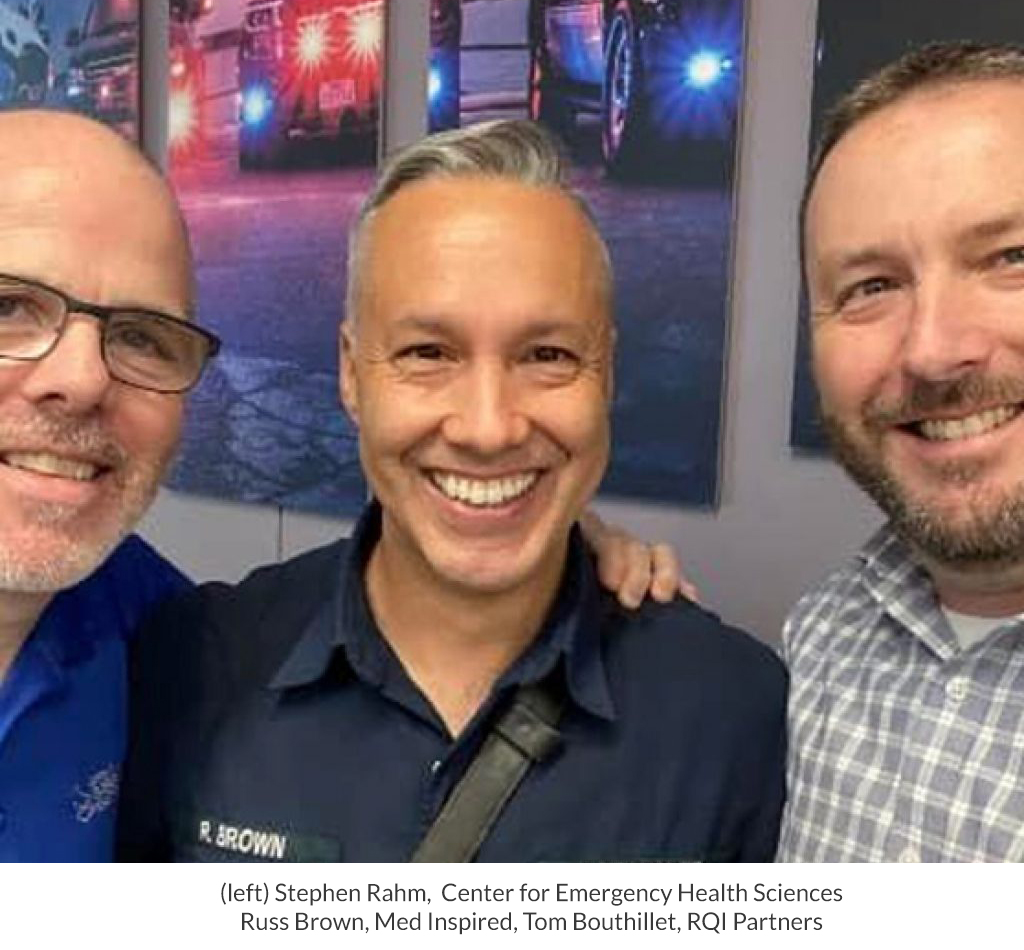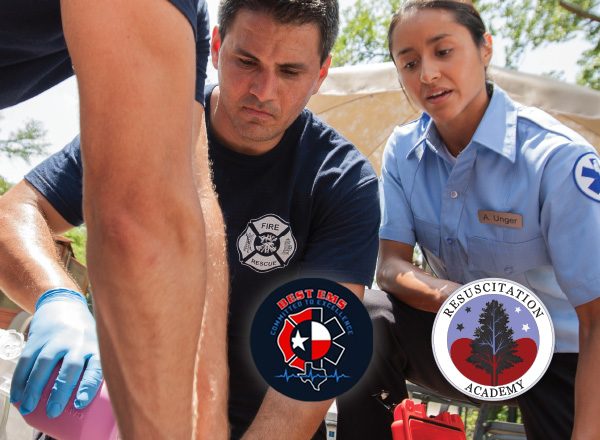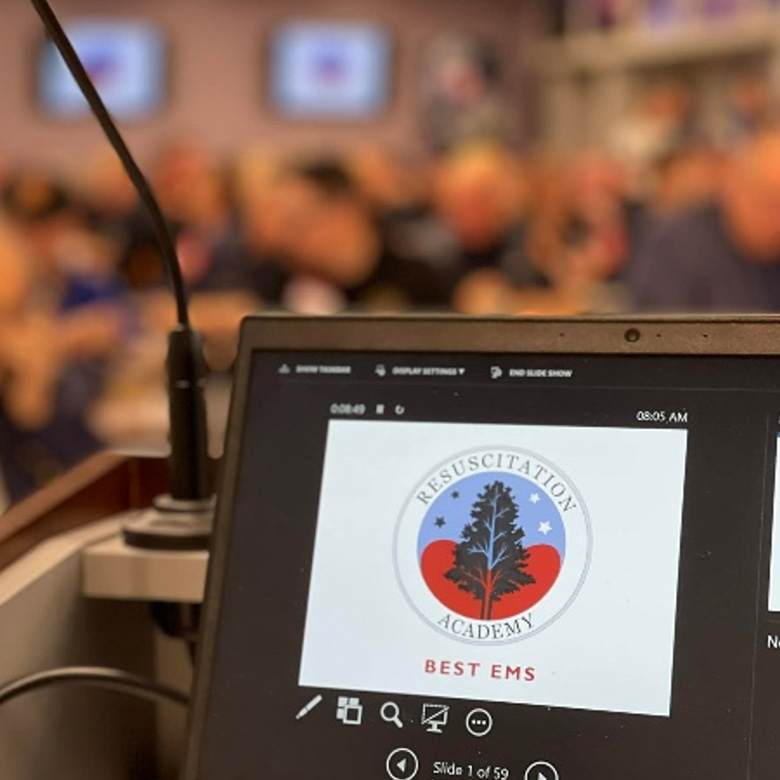
It all started in 2019, when a small group from the Dallas-Fort Worth area attended the Seattle-King County Resuscitation Academy (RA).
The RA, created in 2008, received its first grant to help communities develop and implement action plans to improve survival. The RA has made a commitment to work with EMS providers, community leaders and elected officials, to help communities worldwide strengthen their cardiac arrest survival rates – with the Seattle and King County, Washington area reporting high survival rates of approximately 60%. The group that attended consisted of members from Denton County ESD 1, Carrollton Fire, Sachse Fire, and Addison Fire.
It was at this 2019 event when I spoke about the role of telecommunicators in survival. As the RQI-Telecommunicator (RQI-T) Program Director, I shared how a low-dose, high-frequency, blended-learning quality improvement program designed to improve competency and performance in the delivery of telecommunicator CPR (T-CPR) can make the difference between life and death.
The group were enthusiastic about going home and beginning work with their communications centers. Dr. Justin Northeim, BEST EMS Medical Control Director, shared that his goal was to make his system “the next Seattle”, and that he would love to someday hold a RA event in his community.
Since 2019, these have been his goals. And, by extension, have become the goals of the leaders in his system. In 2022, this goal, this vision that started at the RA in Seattle, became a reality when they hosted the inaugural BEST EMS Resuscitation Academy.
The Resuscitation Quality Improvement difference
The two-day event focused on the science of resuscitation. Systems in attendance shared their experiences in working toward performance improvement, and there was an opportunity to honor local survivors and first responders. The Dallas-Fort Worth event attracted a wide range of attendees with about 90% from the BEST EMS system.
During Dr. Northeim’s “how it began” talk he spoke about the adoption of RQI T-CPR in his system.
“If you’re not doing RQI, you’re not getting it done,” Dr. Northeim stated.
The RQI-T program gives emergency telecommunicators the tools they need to improve the quality of care they deliver to a patient in cardiac arrest. The most effective way to increase bystander CPR rates is by providing real-time CPR instructions to 911 callers.
One of the Carrollton Deputy Chiefs even shared a story with the group and mentioned how they have finally seen their survival improve. They directly contribute this to their communications center, NTECC, participating in RQI.
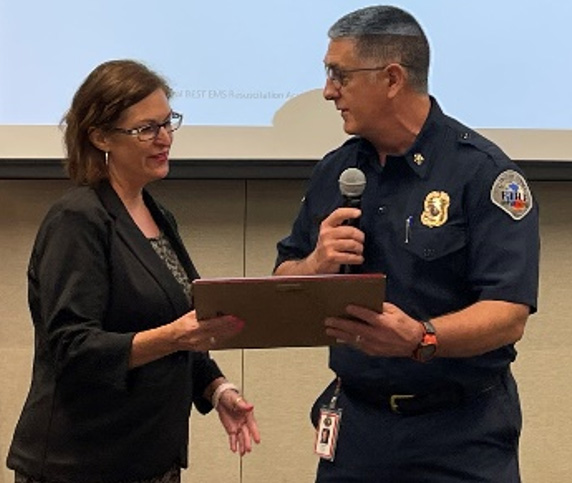
The Grapevine Communications Center was presented with an award recognizing the role they played in a CPR save that occurred three days after implementing the RQI T-CPR program. Their participation in the program was specifically mentioned as a contributing factor in this save.
It takes a system to save lives
The first day focused on how we could work to eliminate preventable death by ensuring that the first responders responsible for patient care in the first 600 seconds of the arrest are provided rigorous training and quality improvement – just as field responders.
On day two, there were two half-day T-CPR workshops. The workshops covered the problem, current state of the union, and how we can start eliminating preventable deaths by operationalizing the American Heart Association science.
In addition to the RQI-T Program Director attending and presenting at the event, Tom Bouthillet, Program Implementation Manager and Michael Herbert, Program Manager attended and assisted on the second day with the high-performance CPR workshop.
RQI is partnering with systems around the country to save more lives from out-of-hospital cardiac arrest by proactively and positively changing the standard of resuscitation education for public safety telecommunicators.
I’m glad I had the opportunity to attend and support this inaugural Dallas-Fort Worth RA and look forward to the opportunity to return in the future. They are well on their way to being recognized as leaders in the resuscitation community in their quest to eliminate preventable deaths from out-of-hospital cardiac arrest.





